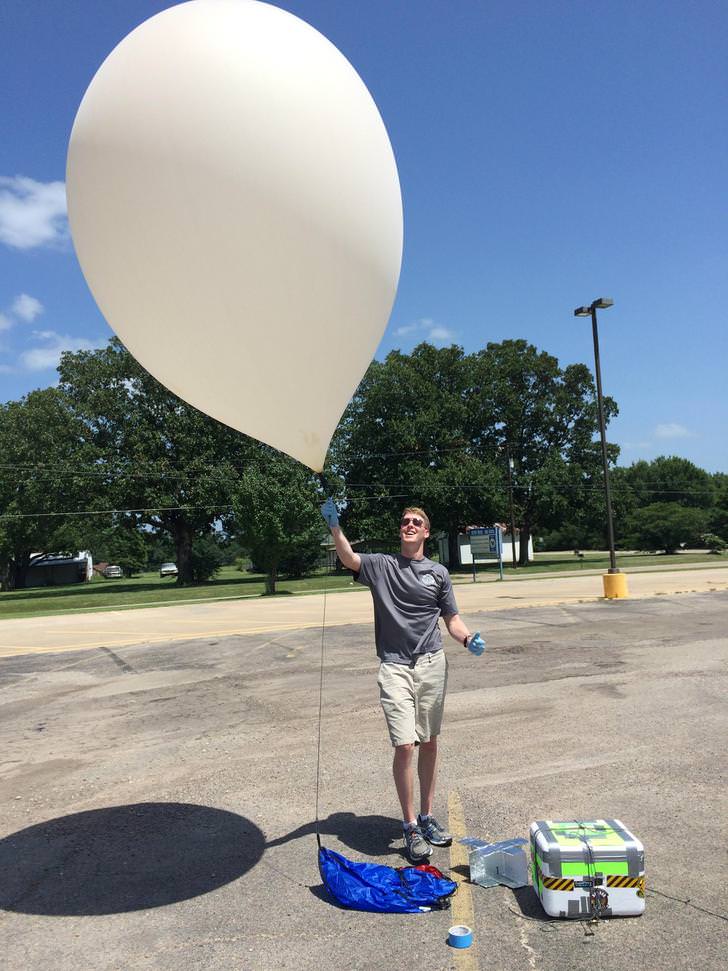Hello all!
Welcome to Stories Matter, a place where humanity is shared and curiosity pursued. Which sometimes means heading to the darker places of life. Like hate.
For you newcomers, first off, welcome! But also, this is a bit more longwinded than normal. Sorry about that:)
For the past two weeks or so my family and I have been on the road, visiting China friends in Kansas City, Missouri, hiking with old friends in Turkey Run, Indiana, surprise visiting Judah's best friend from China in someplace-forgettable, Ohio, and then very much relaxing with my sister and family on a lake in eastern Pennsylvania. So far, we've had a blast (even though I'm currently sitting in an old and crappy waiting room while our van is getting looked at), but we've also had a lot of great conversations. Some easy, others not. All of them purposeful.
I'm sure you are all familiar with reuniting with friends and family. The first moments are a bit awkward, then comes the typical, "So what's new?" conversations, which will probably lead into some sort of remembering old times which are always great, and then there's the discussing of possible future endeavors or summer plans. But if we're lucky (either because we have enough time or because the present company is intentional) we get to discuss the real deep stuff, the personal stuff, the get-beyond-the-surfacy-bullshit- stuff. You know, the human being stuff.
Fortunately, over these past few weeks, we've been able to have some of those conversations, because we're fortunate to have those kinds of friends. But after each visit, as we drive to the next location, I've been thinking, "What is it exactly that forms friendships? Relationships? Community?"
What allows certain family members, friends, communities to flourish while others flounder? Is it diversity? Education? Religion? What?
Then I recalled a discussion I've had (on more than one occasion) with my son about his friends and how I judge whether they are good for him. At first, my criteria was simple: "are they nice to your sisters? Because if they pick on them, then they aren't the type of kids I want you hanging out with." He wasn't thrilled with my assessment, and over time, neither was I. Because it was too simple. Too incomplete. So we added a bit more.
Good Friends Will:
1. Hurt when you hurt
2. Celebrate your success
3. Call you on your crap
4. Listen when you call them on theirs
5. Be nice to your siblings
While driving across country or walking unfamiliar streets in the early mornings (because babies don't sleep well in unfamiliar rooms) these ideas and questions on my mind and a variety of podcasts in my ears. And for whatever reason, a sort of theme has presented itself: Hatred.
At first this topic seemed a bit to heavy or dark to have as a theme, but the more I listened and read and watched snippets of news, the more appropriate it seems to discuss because our world, our country, our communities, even our families seem to be littered with this terrible disease. So why not talk about it?
Origins of Hate:
Today, 100 years ago, Nelson Mandela was born. And for the past 100 years, there may not have been a person on this planet who has had to endure and overcame hate more than this man. He says this about the origins of hate: “People must learn to hate, and if they can learn to hate, they can be taught to love, for love comes more naturally to the human heart than its opposite.” And I don't think he is wrong.
Think about this for a minute. In elementary school, who are our biggest rivals? Other local elementary schools, right? Then, as we all blend into middle school together and find common interests, we begin to have animosity towards other little further yet still local middle schoolers. The same for high school and college. Yet, whenever we attend a professional game of some sort, who do we hate? Teams from other cities, right? But then, during the olympics, those people from rival cities suddenly become those we lock arms with as we our national team competes against foreign countries, whom we grow to dislike, loath, and hate. From an early age, we are taught to dislike, distrust, even hate those who are different.
No wonder it continues on in our churches, families, politics, and communities.
So then, what do we do about it?
The other day, while walking in the blistering midday heat of Warrington, PA, I listened to perhaps one of the most challenging yet enjoyable podcasts of the past few months, and found possible answers.
Why we hate, and what we can do about it:
We develop hate as a mechanism to not blame ourselves for failures and voids we are unable to fill," Christian Picciolini says in an interview with Guy Raz, "If I made people feel worse than I did, than that made me feel better about myself and that might have been the only way that I could actually feel good about myself. Many, many people were doing that, if not all of t(the white supremacists) were projecting their own pain, their own trauma, their own unresolved issues onto other people so they didn't have to feel it themselves. But I also think it was about ignorance, isolation, and fear (Why We Hate, by TED Radio Hour).
What I loved most about this TED Talk though was not just the various explanations of why we hate and the discussions of whether or not it is innate or learned, but that it gave very tangible solutions to hate. They aren't easy, but they're concrete. And I like that.
While listening to this podcast (and I mean it, check it out . . . it's fantastic), I was reminded of the time I spent in Hawaii, roaming the streets, and forcing myself to talk to anyone who caused even the slightest bit of fear in me. The first guy I talked to was Trey, a large African-American man with tattoos on his arms, neck, and cheeks. It took me the better part of a block to approach him, and when I did, my voice shook. I was terrified. But so was he, which of course I found preposterous because why should he be scared of me? It wasn't until later on in the evening, when I was waiting for a bus, that he and I ended up sitting together for almost two hours and I learned why he was scared of white people (because they can't be trusted), why he was living in Hawaii (used to be married to a woman in the army), why he took a teaching job in Alaska (because people told him he couldn't), and why I was so scared of him. Ignorance.
Learning love and compassion:
The episode also reminded me of many other instances where we - the broken human race - have allowed ignorance and fear to lead to hate, but also - and more importantly - how, through compassion, conversation, and forgiveness, we've been able to overcome it. Here are a few of my favorites (in no particular order):
The Black Panther Party: For me, the Black Panther Party meant leather car coats, black turtlenecks and black berets. It meant violence and guns. It inspired fear. But like the many black men and women who joined the Black Panther Party with ideas of power and revenge, I was fully disillusioned. Because for many years my understanding of the Black Panther Party, their history and their purpose, was shaped by media and movies. And I believed that what I saw and knew was fully true. Until this, a revised history of the Black Panther Party.
Muslims: In order for community and unity to be found, for ignorance to be beaten, somebody has to be strong. Kind. And bigger than the situation and themselves. They must, "remain delightful" because, "you'll attract more bees with honey." Which also means, sometimes, those holding the honey will have to endure the stings of the ignorant and cruel. The Muslims are coming is one such example because, contrary to what is often portrayed, instead of hate and guns and violence, many Musslims are carrying honey.
Refugees and my Neighbors: What if we treated our neighbors like refugees? What if we treated refugees like our neighbors? Not that long ago, a young girl from Judah's class missed the bus because her sister overslept. She couldn’t go home because nobody was there and she couldn’t make it to school because the roads were barely plowed and most of the sidewalks hadn’t been shoveled. Plus, she was cold. She wasn’t wearing socks or a hat or even a jacket, and at eight o’clock in the morning, it was still a few degrees below zero. So she knocked on our door, and we treated her like a refugee.
WWII Soldiers: An Oregon couple is providing closure to the descendants of Japanese soldiers killed in World War II by repatriating the "good luck" flags they carried into battle, which were acquired by American GIs. Lee Cowan talks to veterans and their families about a respectful and emotional return - and of a bond born of war and strengthened in peace.
I still don't have a concrete outline of how to create strong and healthy relationships and communities, but for now here are a few I'm working on:
Healthy Communities Will:
- Embrace compassion over judgement
Pursue conversation rather than gossip
Be patient and provide second, third, fourth, and many other chances
Seek first to understand, not to be understood
Treat each other like good friends (from the list above)
In Conclusion:
Thank you all for subscribing and reading! Please, if you have any suggestions, comments, or recommendations, send them my way!!! In the meantime, here are a few things I'm currently wresting with:
- What I’m reading: The Wizard and the Prophet: Two Remarkable Scientists and Their Dueling Visions to Shape Tomorrow's World,
by Charles C. Mann. Because by the year 2050 there will be 10 billion people on this earth, and our world simply cannot handle it.
- Quotes I'm considering: "Harmony : everything is uniquely itself and by being uniquely itself, part of a greater community" from "What Wisdom Can We Gain From Nature." This one too is extremely impactful, in just 9 short minutes!!! Check it out.
Enjoy the week! And be curious.




















